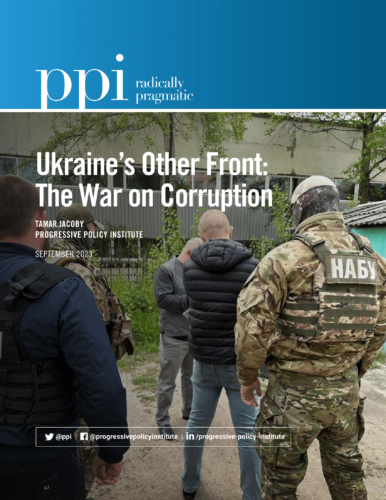Ukraine’s Other Front: The War on Corruption
By: / 09.21.2023
Download PDFINTRODUCTION
Before the full-scale Russian invasion in February 2022, many Americans could not place Ukraine on a map. Still, they knew one thing: it was a country plagued by corruption — deeply, thoroughly, perhaps even intrinsically corrupt.
Few Ukrainians would quarrel with the underlying charge. Ukraine has struggled with a toxic legacy of corruption since it declared independence from the Soviet Union in 1991. Where most Ukrainians would disagree: with the notion that the problem is endemic — somehow intrinsic or inherent and, by extension, immutable. On the contrary, Ukraine has been fighting fiercely for more than a decade to root out corruption and strengthen the rule of law.
Progress has been intermittent, often one step forward, two steps back, and there remains much to be done. But many of the breakthroughs seen in recent years would have been unthinkable a decade ago. And contrary to expectations — most observers anticipated that reform would stall in wartime — the war on corruption has intensified since the 2022 invasion.
Much is at stake on this second front for both Ukraine and the West. Corruption took a heavy toll in Ukraine’s early years as the country struggled to free itself from the Soviet past, establishing a market economy and forging ties to the West. Funding that should have been used to grow the economy was diverted into private hands. Fearful foreign investors stayed away even as they flocked to other Central and Eastern European countries like Poland and Czechia. Powerful vested interests erected barriers to entry in vital industries, suppressing competition and choking growth. Meanwhile, a lack of public trust in government stymied the development of democracy.
The 2022 invasion raised the stakes further still, including for Ukraine’s Western backers. In the past 18 months, according to the Kiel Institute for the World Economy, the U.S. has committed $74.5 billion in military and humanitarian aid to Ukraine. Together, the European Union (EU) and its member states have committed nearly twice that much — $141.3 billion. (See Figure 1.) The bill for postwar reconstruction is already being estimated at more than $1 trillion, and Kyiv hopes much of this funding will come from private investors, ideally backed by Western governments and international financial institutions.
Any unlawful diversion of any of this support would have disastrous consequences for Ukraine’s future, crippling reconstruction and the national political renewal Ukrainians hope will come with it.
European integration also depends on beating back corruption. It’s no accident that five of the seven conditions the EU has asked Ukraine to meet before moving forward with accession trace back to anticorruption reform and the rule of law. Failure could block Ukrainian membership in both the EU and NATO, further discouraging foreign investment and democracy building.
Bottom line: The struggle to root out corruption will be as important to Ukraine’s future as driving Russian soldiers from its territory. Failure on either front would put an end to the dream of a fully democratic, independent nation ready to take its place in Europe — an unimaginable disappointment for Ukrainians and a profound risk for the West, which can ill-afford a faltering, unmoored state on its border with an emboldened, rapacious Russia.
But none of this means that fighting corruption is easy or that success is guaranteed. The past decade has been a long, hard struggle: reforms introduced and then scuttled, implementation blocked at every turn, charges filed and then ignored by the courts, anticorruption activists beaten and murdered. Those with a vested interest in the old order have stopped at nothing. And Ukraine will need its allies’ support as much on this front as on the battlefield — financial support, technical assistance, exacting standards and, when necessary, a refusal to compromise or relax standards. Reform advocates say Ukraine has been transformed in the past decade. “The corruption of 10 years ago and now — it’s two different worlds,” says Viktor Nestulia, the Open Contracting Partnership’s team lead in Ukraine. Yet no one in civil society thinks the fight is over. “There will always be someone in government trying to block reform,” Anti-Corruption Action Center (AntAC) executive director Daria Kaleniuk explains. “We need our international partners to help us combat this obstruction by conditioning their support on our progress.”


